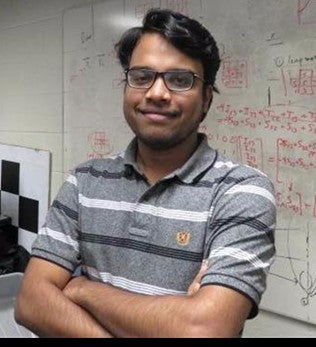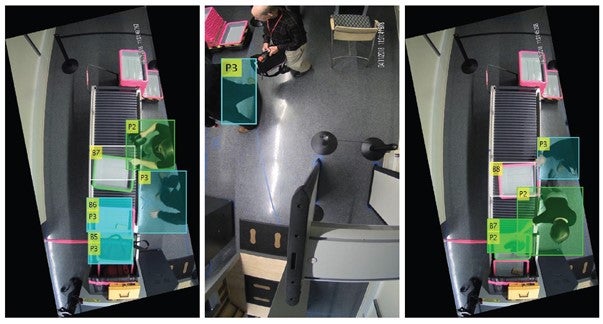
Ashraful Islam, a Ph.D. candidate with the Electrical, Computer, and Systems Engineering Department at RPI under the advisement of Rensselaer Professor Richard Radke, was recently awarded the Best Paper Award at the 2018 International Conference on Distributed Smart Cameras (ICDSC) in Eindhoven, The Netherlands. The co-authored paper, “Correlating Belongings with Passengers in a Simulated Airport Security Checkpoint”, is part of a joint research project with Yuexi Zhang, Dong Yin and Octavia Camps of Northeastern University, and is sponsored by the Department of Homeland Security Center of Excellence on Awareness and Localization of Explosives-Related Threats (ALERT).
The paper proposes automatic algorithms for accurately tracking and associating passengers with their divested objects at an airport security screening checkpoint. The algorithms can potentially improve security checkpoint efficiency by quantifying passenger and conveyer-belt flow, detecting thefts, maintaining a line-of-sight between passengers and their bags, and enabling risk-based screening. The algorithms use both hand-crafted and deep-learning-based approaches for passenger and bin tracking, and can accurately track objects through a ceiling-mounted multi-camera array.
Islam and the research team successfully demonstrated the effectiveness of their algorithms in a realistic full-scale physical simulation of an airport security checkpoint located at the Kostas Research Institute for Homeland Security at Northeastern University in Boston. Improved processing at checkpoints would lead to a significant reduction both in the volume and time of passengers in line
and allow for suspicious items or persons to be quickly detected and addressed. The team will continue their research in the coming year, extending their analysis to more difficult situations such as passengers in wheelchairs, children in strollers, and families traveling together.

Leah Scott, MBA
Marketing and Outreach Manager
School of Engineering
Rensselaer Polytechnic Institute
Office: (518) 276-4010
Email: scottl2@rpi.edu
Website: ecse.rpi.edu


